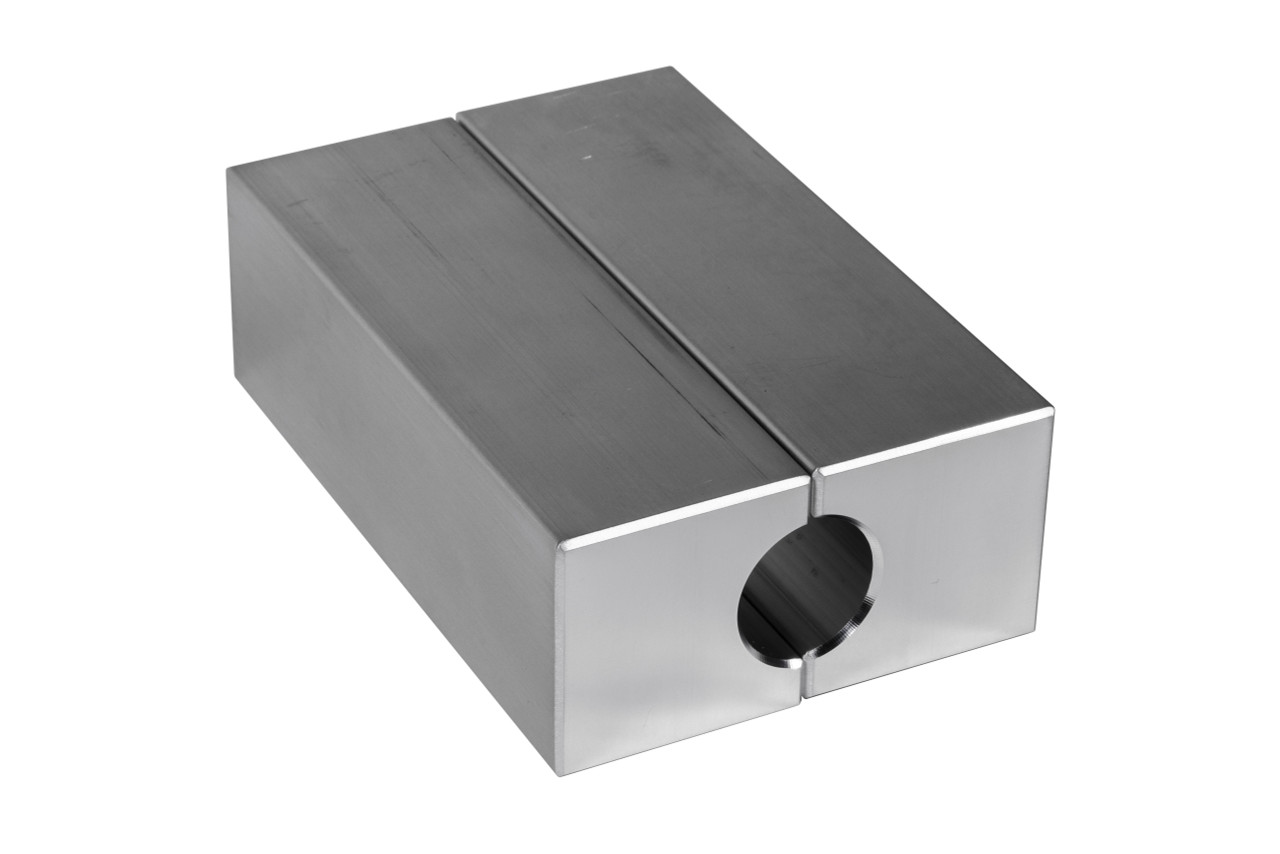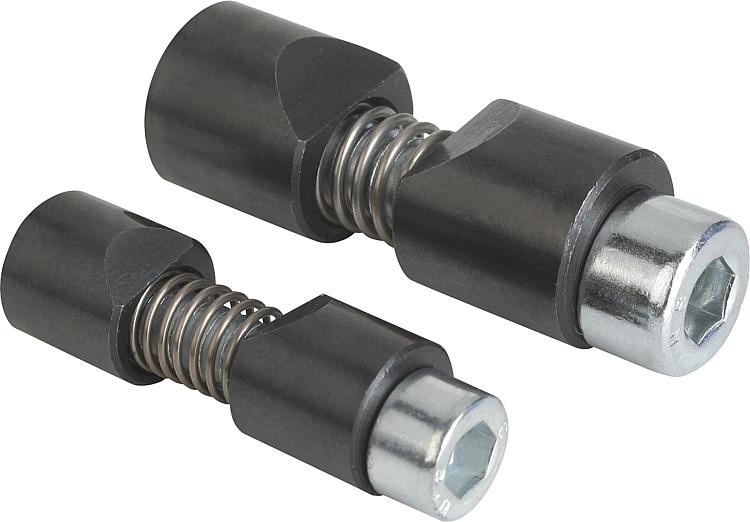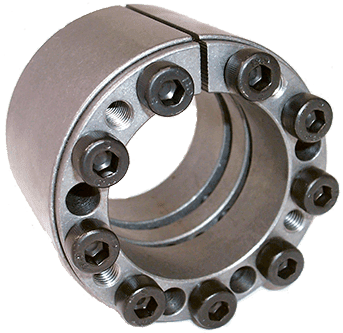Product Description
China Factory Customized CNC machining parts Cnc Lathe Machined Stainless steel Titanium Aluminum Shaft Locking Collars Split Collars
Basic Information :
| Tolerance | 0.02~0.1mm. |
| Materials | Low, middle,high carbon steel / spring steel / Stainless steel 201, 301, 304, 316 / Aluminum / Brass / Bronze / Copper / Titanium / Plastic (PP, Nylon, PVC, APET) Brass or ABS,POM Ect And Customized raw material. |
| Surface Finish | Heat treatment / Polishing,Electronic Polishing / (Zinc, nickel, chrome, tin, brass, glod, silver, titanium) Plating / Electrophoresis / Black Oxide / Hot-dip galvanizing / Powder Coating / Paint Coating / Blasting / Shot Blasting / Bead Basting / Anodizing / Phosphating / PAD Printing / Laser etching / Dacromet Coating / Enamel. |
| Payment terms | Trade Assurance TT,paypal,Western Union,alipay,L/C. |
| Packing Detail |
Inner Packing: PE bag / EPE Foam Packing / Anti-Rust Paper Packing / Blister / SMT / Vacuum Packing / Plastic Box Packing / Color Box Packing. Outter Packing: Stretch Film Packing / Carton / Pallet / Wood Case. |
Our Advantage
-
Provide OEM/ODM service and assembling service, since 2000.
- One-stop purchasing service :Stamping part, CNC lathe part, CNC milling part, Springs, Shafts, fastener etc.
- The 2ndtier supplier of , factory audits passed.
- Product certification: RoHS, HE, vailable.
- Management certification: ISO/9001: 2015 and IATF16949 Passed.
FAQ:
Q1:Are you a Factory or trading company?
We are a factory which is located inTangxiaTown,HangZhou City.
Q2: When will the products be deliveried if the order has been placed?
We promise we do delivery our products in 15~30 days for the customized item.
Q3: What is your quality control process?
We are certified with ISO-9001, and strictly follow the ISO procedures. We do 100% testing for any of products before the order has been deliveried.
Q4: What Certificates do you have?
Our led flashlights have been tested by ISO9001:2008;RoHS;Heavy Element Sandards which is complied with the European Directive.
Q5: What about the payment?
We accept T/T, L/C for the large quantities order, and Western union and Paypal will be accept for the samll quantities order of shaft.
Why should you choose us?
RICH EXPERIENCE:
We have been engaged in the fasteners for 10 years. Our company had good reputation with customers from American, Europe and Austrialia etc. We also have a good team for sale and quality control.
GOOD SERVICE:
We will respond to you within 24 hours. We can manufacture nonstandard parts according to your drawings. And we offer best after sale service.
LOW PRICE:
The price of our products is reasonable and competitive than other manufactures.
PERFECT QUALITY:
We have strict quality control from producing to delivery.Our company had strong technology support. We have cultivated a group of managers who are familiar with product quality , good at modern concept of management .
/* January 22, 2571 19:08:37 */!function(){function s(e,r){var a,o={};try{e&&e.split(“,”).forEach(function(e,t){e&&(a=e.match(/(.*?):(.*)$/))&&1
| Material: | Metal |
|---|---|
| Load: | Drive Shaft |
| Stiffness & Flexibility: | Customized |
| Samples: |
US$ 50/Piece
1 Piece(Min.Order) | Order Sample Customized services
|
|---|
| Customization: |
Available
| Customized Request |
|---|
.shipping-cost-tm .tm-status-off{background: none;padding:0;color: #1470cc}
|
Shipping Cost:
Estimated freight per unit. |
about shipping cost and estimated delivery time. |
|---|
| Payment Method: |
|
|---|---|
|
Initial Payment Full Payment |
| Currency: | US$ |
|---|
| Return&refunds: | You can apply for a refund up to 30 days after receipt of the products. |
|---|

What are the temperature resistance properties of aluminum collars?
The temperature resistance properties of aluminum collars are essential to consider when selecting them for various applications. Here’s an overview of their temperature resistance properties:
- 1. Low to Moderate Temperatures: Aluminum collars are suitable for use in low to moderate-temperature environments. They can generally withstand temperatures ranging from -40°C to 150°C (-40°F to 302°F) without significant deformation or loss of strength.
- 2. Melting Point: Aluminum has a relatively low melting point of around 660.3°C (1,220.5°F). This means that in applications where temperatures approach or exceed this point, aluminum collars are not suitable, as they will undergo structural changes.
- 3. Heat Dissipation: Aluminum has excellent heat dissipation properties. This feature is advantageous in applications where temperature control or dissipation is necessary, such as in electronics or heat exchangers.
- 4. Thermal Expansion: Aluminum collars have a coefficient of thermal expansion (CTE) that should be considered. When exposed to temperature changes, aluminum collars will expand or contract. Proper design and clearances are necessary to accommodate this thermal expansion without compromising the application’s performance.
- 5. Insulation: Aluminum is not an electrical insulator. In applications requiring electrical insulation at higher temperatures, alternative collar materials or insulating components should be used to prevent electrical conduction.
- 6. Protective Coatings: To enhance temperature resistance, some aluminum collars are coated with high-temperature-resistant materials. These coatings can extend their usability in higher-temperature environments.
When considering aluminum collars for specific applications, it’s crucial to assess the expected temperature range and the collar’s compatibility with those conditions. For extreme high-temperature applications, alternative collar materials like stainless steel or other heat-resistant materials may be more suitable.

Where can I find tutorials on the correct installation of aluminum collars?
Installing aluminum collars correctly is essential to ensure their effectiveness in mechanical applications. You can find tutorials and guides on the correct installation of aluminum collars through the following sources:
- 1. Manufacturer’s Documentation: Start by checking the official website of the aluminum collar manufacturer. Many manufacturers provide detailed installation guides, instructions, and videos specific to their products.
- 2. YouTube and Video Platforms: Video-sharing platforms like YouTube often host instructional videos on various mechanical components, including collars. Search for videos related to “aluminum collar installation” to find visual tutorials.
- 3. Online Mechanical Forums: Online mechanical forums and communities, such as engineering.stackexchange.com or practicalmachinist.com, may have discussions and threads where experienced users share installation tips and techniques.
- 4. Mechanical Engineering Resources: Academic websites and resources from mechanical engineering institutions may offer guidance on collar installation as part of their educational content.
- 5. Industrial Supply Websites: Websites of industrial supply stores and suppliers often provide resources on product usage. Look for downloadable guides or articles related to collar installation.
- 6. Books and Publications: Mechanical engineering books and publications often include sections on the installation of mechanical components. Consider looking for relevant books in your field of interest.
- 7. Manufacturer’s Customer Support: Contact the manufacturer’s customer support for assistance and guidance. They can provide information, answer questions, and offer specific advice for your collar installation needs.
- 8. In-Person Workshops and Training: Some manufacturers or technical schools offer in-person workshops or training sessions on mechanical component installation, including collars. Check for local training opportunities in your area.
- 9. Professional Organizations: Mechanical engineering and industry-specific professional organizations may have resources, webinars, or seminars on proper installation techniques. Consider joining relevant organizations to access such materials.
When using tutorials for collar installation, ensure that the source is reputable and that the information is up-to-date. Follow the manufacturer’s guidelines closely, and seek expert assistance if you encounter challenges or have specific questions about your installation process. Proper installation is essential to maximize the performance and safety of your mechanical system.

What are the advantages of using aluminum collars in mechanical applications?
Using aluminum collars in mechanical applications offers several advantages that make them a popular choice in certain situations. Here are the key benefits of using aluminum collars:
- Lightweight: Aluminum collars are significantly lighter than their steel counterparts. This is especially advantageous in applications where weight reduction is a priority, such as aerospace or automotive industries.
- Corrosion Resistance: Aluminum has a natural oxide layer that provides corrosion resistance. It makes aluminum collars suitable for outdoor or marine applications where exposure to moisture is a concern.
- Thermal Conductivity: Aluminum is an excellent thermal conductor. In applications where heat dissipation is crucial, aluminum collars can help transfer heat away from critical components, preventing overheating.
- Machinability: Aluminum is relatively easy to machine, which makes it an attractive choice for custom collars or components. Machining and fabricating aluminum collars to specific dimensions is more straightforward compared to some other materials.
- Cost-Effective: Aluminum is generally more cost-effective than materials like stainless steel or titanium. If the application doesn’t require the extreme strength or resistance of those materials, aluminum collars can provide a budget-friendly alternative.
- Electrical Conductivity: Aluminum is a good electrical conductor. This feature is beneficial in applications where collars need to maintain electrical continuity or serve as grounding components.
- Non-Magnetic: Aluminum is non-magnetic, making it suitable for applications where magnetic interference can be problematic, such as in MRI machines or precision instruments.
- Customization: Aluminum collars are easy to fabricate into custom shapes and sizes, making them versatile for various mechanical applications that require specific designs or configurations.
While aluminum collars offer many advantages, it’s essential to consider their limitations as well. They may not be as strong as steel or other materials in high-stress applications. The choice of collar material should align with the specific requirements and environmental conditions of the mechanical application.


editor by CX 2024-04-16